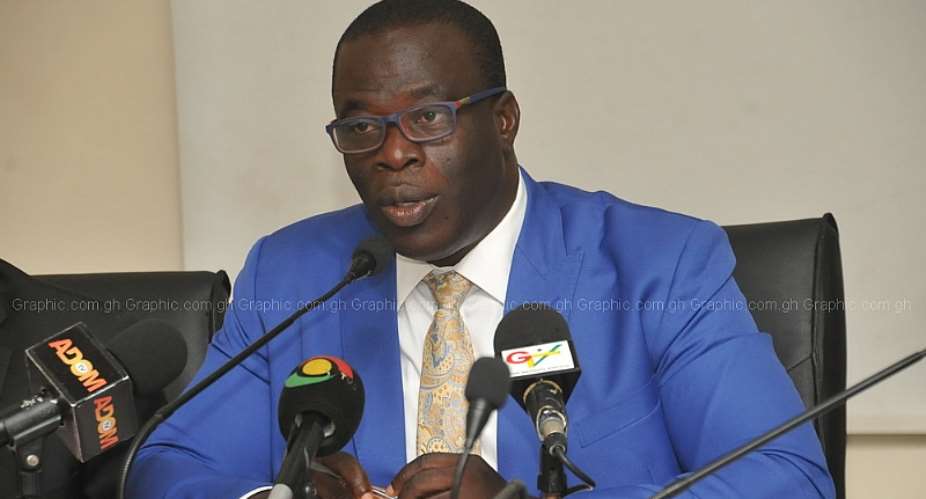Minister for Employment and Labour Relations Ignatius Baffuor Awuah shocked Journalists in Koforidua in the Eastern region when he stormed out of an interview after a question on political will in the fight against child labour.
The Minister was about to be interviewed by Journalists on the sidelines of a Parliamentary Select Committee on Employment, Social Welfare and State Enterprise Seminar on Child Labour where he addressed participants about the existence of child labour in various communities and its repercussions on the victims and international trade particularly cocoa commodity.
The first question asked by a Ghanaweb journalist McAnthony Dagyenga said: “Honourable, we are in 2021 and child labour still seems to be a big challenge in Ghana. Is it that the political will to curb this challenge has been low?” got the Minister infuriated and stormed out of the interview.
Mr. Baffour-Awuah quickly retorted “I will not answer this question. If this is how you are starting your interview, I will not answer. Any small opportunity you people get you want to push somebody into politics. I won’t answer. Have you people been seeing me featuring on your programmes?”. The minister then walked away from the interview.
Surprised by the action of the Minister, the Journalists kept wondering how a question on political will by governments on child labour constitutes politicization of the menace.
According to UNICEF, of all children in Ghana aged 5 to 17 years, about 21 per cent are involved in child labour and 14 per cent are engaged in hazardous forms of labour. This is twice as common in rural areas.
For poorer households, child labour is a negative coping mechanism and most of the children are involved in agriculture and fishing industries. In all regions, the vast majority of working children are unpaid family workers between the ages of 5 and 7 years. While usually, boys are more likely to be doing manual work, this could be due to the household interpretation of what constitutes child labour. Thus, the heavy domestic workload for girls, including childcare, is not considered as labour.
There are no reliable figures on the number of children affected by the worst forms of child labour (sale of children, child prostitution and trafficking) and children living and working on the streets of Ghana.
While accurate numbers of human trafficking cases don’t exist, it is believed that the large majority of all cases involve children, mainly girls.
—starrfm





 We’ll protect state wealth from opaque deals – Prof Jane Naana
We’ll protect state wealth from opaque deals – Prof Jane Naana
 Mauritania president says running for second term in June polls
Mauritania president says running for second term in June polls
 I won't ever say I was a mere driver’s mate' — Prof. Opoku-Agyemang
I won't ever say I was a mere driver’s mate' — Prof. Opoku-Agyemang
 2024 polls: 'EC struggling to defend credibility'— Prof. Opoku-Agyemang
2024 polls: 'EC struggling to defend credibility'— Prof. Opoku-Agyemang
 Akufo-Addo gov't's 'greed, unbridled arrogance, unrestrained impunity, sheer dis...
Akufo-Addo gov't's 'greed, unbridled arrogance, unrestrained impunity, sheer dis...
 Election 2024: Ghana needs an urgent reset, a leadership that is inspiring – Ma...
Election 2024: Ghana needs an urgent reset, a leadership that is inspiring – Ma...
 Partner NDC to rollout a future of limitless prospects – Prof Jane Naana Opoku-A...
Partner NDC to rollout a future of limitless prospects – Prof Jane Naana Opoku-A...
 NPP will remain in gov’t till Jesus comes — Diana Asamoah
NPP will remain in gov’t till Jesus comes — Diana Asamoah
 Sunyani Technical University demands apology from former SRC president over sex-...
Sunyani Technical University demands apology from former SRC president over sex-...
 'Dumsor' was resolved by Mahama but ‘incompetent' Akufo-Addo has destroyed the g...
'Dumsor' was resolved by Mahama but ‘incompetent' Akufo-Addo has destroyed the g...
